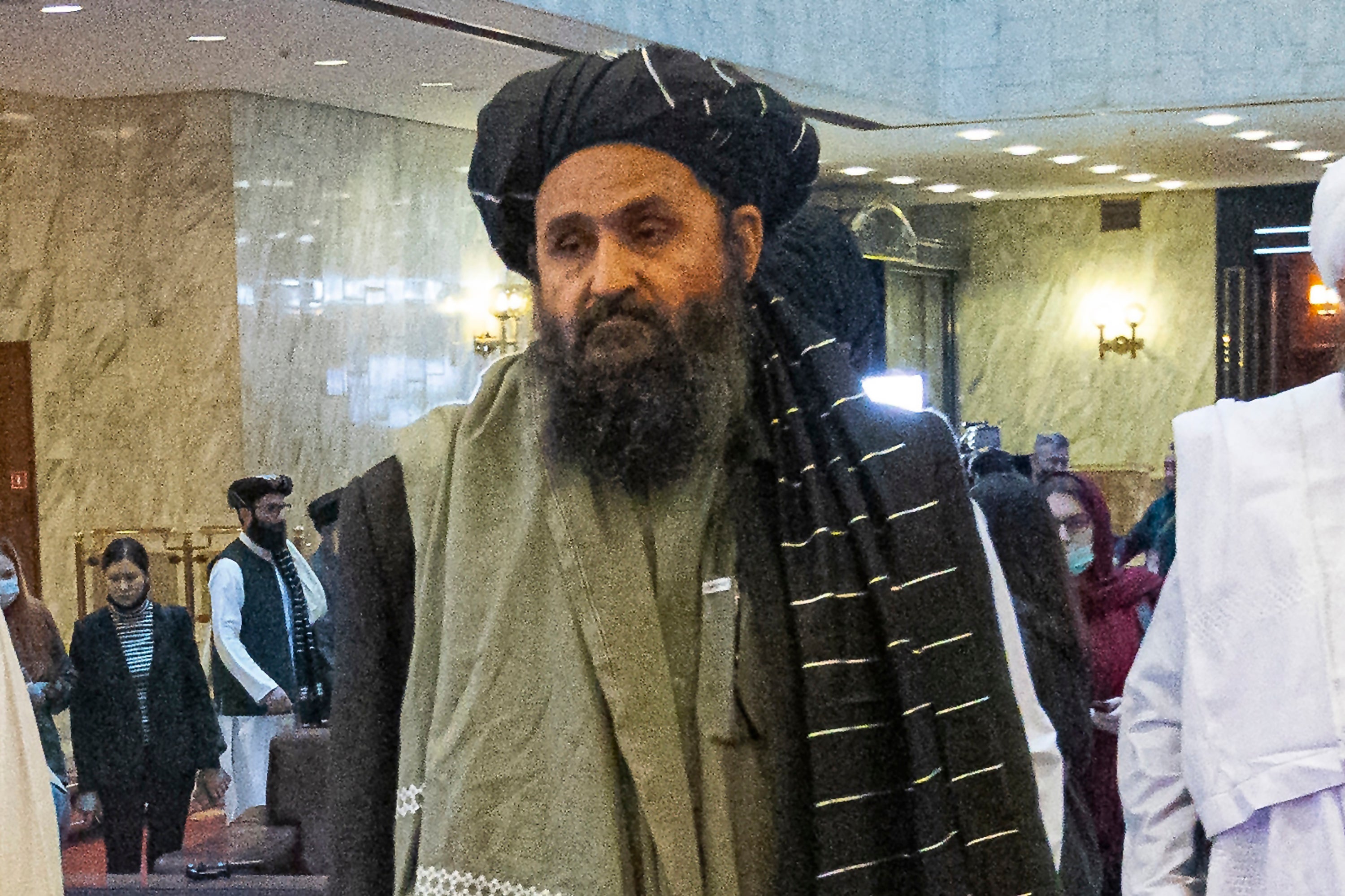Afghanistan: Taliban co-founder Mullah Abdul Ghani Baradar arrives in Kabul to set up new government
Baradar to meet ‘jihadi leaders and politicians’ as Taliban seeks to consolidate political grip on country

Your support helps us to tell the story
From reproductive rights to climate change to Big Tech, The Independent is on the ground when the story is developing. Whether it's investigating the financials of Elon Musk's pro-Trump PAC or producing our latest documentary, 'The A Word', which shines a light on the American women fighting for reproductive rights, we know how important it is to parse out the facts from the messaging.
At such a critical moment in US history, we need reporters on the ground. Your donation allows us to keep sending journalists to speak to both sides of the story.
The Independent is trusted by Americans across the entire political spectrum. And unlike many other quality news outlets, we choose not to lock Americans out of our reporting and analysis with paywalls. We believe quality journalism should be available to everyone, paid for by those who can afford it.
Your support makes all the difference.Mullah Abdul Ghani Baradar, the co-founder of the Taliban, arrived in Kabul ahead of talks to establish a new government in Afghanistan.
A senior Taliban official told AFP news agency Baradar would meet with “jihadi leaders and politicians” to set up an “inclusive government” as the Taliban seeks to consolidate their political grip on the country.
Baradar, who is also the head of the group’s political office in Doha, arrived in the city of Kandahar on Tuesday - two days after the militants seized control of the capital.
He is one of the four men who founded the Taliban in 1994, and became a key member of the insurgency when jihadists were defeated in the US-led invasion in 2001. He was later captured in a joint US-Pakistani operation in the southern Pakistani city of Karachi in 2010 but released eight years later as part of plans to facilitate peace talks.
Baradar was also a key figure in the negotiations that led to the peace deal struck last year in Doha by the Trump administration, which saw US forces withdraw and end their 20-year military campaign in Afghanistan. He was the first Taliban leader to communicate directly with a US president after he and Donald Trump shared a phone call.
It comes after a string of senior Taliban leaders arrived in Kabul in recent days. Khalil Haqqani, one of America’s most wanted terrorists, was seen in the capital meeting Gulbuddin Hekmatyar - a prominent politician and former rival during the 1992 civil war - on Thursday.
The Taliban claim they are seeking to form an “inclusive, Islamic” government despite reports of atrocities carried out across the country. In recent days, former government officials told of hiding from the militants as gunmen went from door to door.
Although the group has sought to present a more moderate face since its takeover, the Taliban rule from 1996 to 2001 was marked by brutality, human rights abuses and strict interpretation of Sharia law. Their promise of a more liberal rule has been met with scepticism by some Afghans and international leaders.
Baradar is the only surviving Taliban leader to have been personally appointed deputy by the late Taliban commander Mullah Mohammed Omar, which has given him near-legendary status within the movement.
The Taliban’s supreme leader, Maulawi Hibatullah Akhunzada, is believed to be hiding in Pakistan and only releases occasional statements.
In his first comments after the capture of Kabul on Sunday, Baradar acknowledged his surprise at the speed of the Taliban’s military advance, saying: “It was never expected that we will have victory in Afghanistan.”
“Now comes the test,” he added. “We must meet the challenge of serving and securing our nation, and giving it a stable life going forward.”
His arrival came as western countries raced to evacuate diplomats from Kabul amid chaotic scenes at the airport.
US forces have evacuated around 12,700 people from the country since Saturday, with up to 80,000 Americans and Afghan allies still wanting to leave.
Join our commenting forum
Join thought-provoking conversations, follow other Independent readers and see their replies
Comments